Results
-
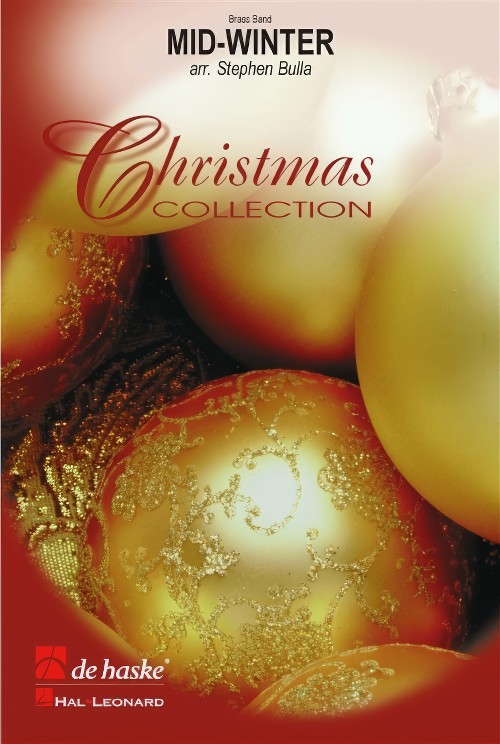 £54.99
£54.99Mid-Winter (Brass Band - Score and Parts) - Bulla, Stephen
This beautiful Christmas tune by Stephen Bulla sets the perfect atmosphere for your Christmas concert. Light the candles and enjoy the most wonderful time of the year with friends, family and music.Duration: 4:40
Estimated dispatch 7-14 working days
-
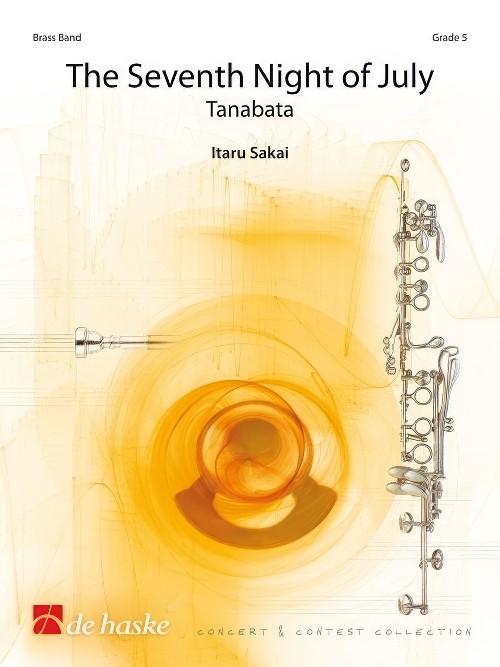 £102.99
£102.99The Seventh Night of July (Brass Band - Score and Parts) - Sakai, Itaru
In Japan, July the 7th is a holiday known as Tanabata, for which large celebrations are held throughout the country. The holiday is based on a legend about a young man and a young woman who are separated by the Milky Way and can only see each other once a year on this night. The Seventh Night of July is Itaru Sakai's musical interpretation of this romantic legend. The flugel horn and euphonium solos during the middle movement represent the two main themes from the legend.
Estimated dispatch 7-14 working days
-
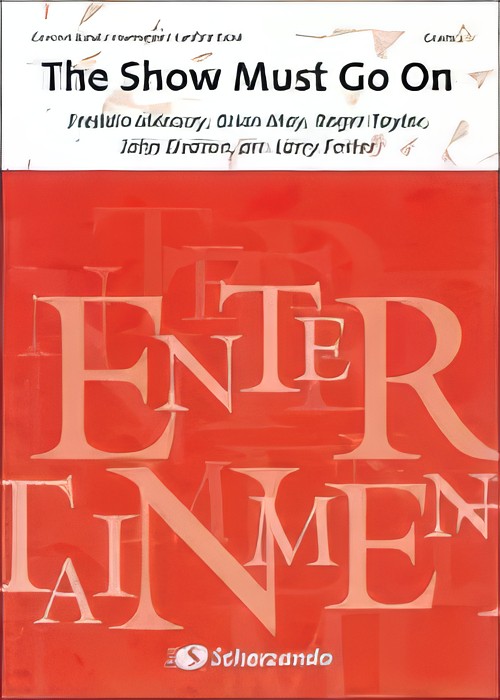 £54.99
£54.99The Show Must Go On (Brass Band - Score and Parts) - Foster, Larry
The Show Must Go On was one of the last hits for Freddie Mercury in 1991, the year of his death. In this context the title has a tragic significance. This arrangement will please both musicians and audiences and will throw off the sad associations of this song.Duration: 3:45
Estimated dispatch 7-14 working days
-
 £42.50
£42.50Martini (Brass Band - Score and Parts) - De Haan, Jacob
This swinging march by Jacob de Haan was commissioned by the foundation "Vrienden van de Groningse Politie-muziek" (Friends of the Police Music of Groningen), on occasion of the 950 year anniversary of the "Martini-city" Groningen. The trio in this piece features the anthem of the province of Groningen.Duration: 2:45
Estimated dispatch 7-14 working days
-
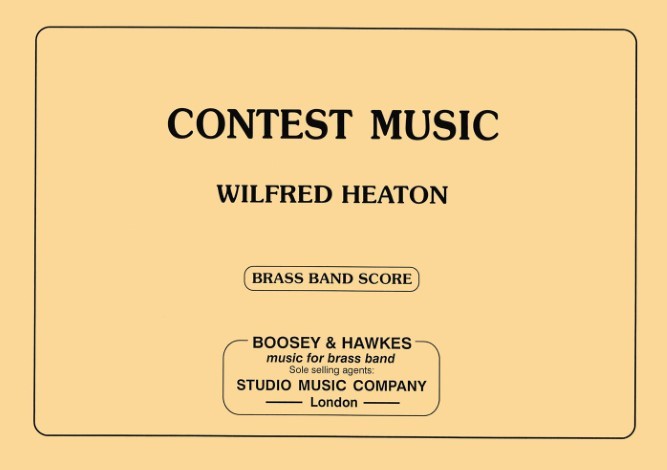 £44.95
£44.95Contest Music (Brass Band - Score only) - Heaton, Wilfred
Butlins 2018 Championship Section. One of the three choices of set works. The others were Year of the Dragon (Sparke) and Concerto for Brass Band No.1 (Venables).
Estimated dispatch 7-14 working days
-
 £94.95
£94.95Contest Music (Brass Band - Score and Parts) - Heaton, Wilfred
Butlins 2018 Champsionship Section. One of the three choices of set works. The others were Year of the Dragon (Sparke) and Concerto for Brass Band No.1 (Venables).
Estimated dispatch 7-14 working days
-
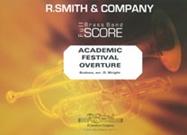 £29.95
£29.95ACADEMIC FESTIVAL OVERTURE (Brass Band Score only) - Brahms, Johannes - Wright, Denis
2012 National Championships Finals - Second Section. Brahms composed Academic Festival Overture during the summer of 1880 as a musical "thank you" to the University of Breslau which had awarded him an honorary doctorate the previous year. The overture consists of four continuous sections, all based on German student songs, the most famous of which is the last, 'Gaudeamus igitur'. Duration: 10'30".
Estimated dispatch 7-14 working days
-
 £59.95
£59.95ACADEMIC FESTIVAL OVERTURE (Brass Band Set - Score and Parts) - Brahms, Johannes - Wright, Denis
2012 National Championships Finals - Second Section. Brahms composed Academic Festival Overture during the summer of 1880 as a musical "thank you" to the University of Breslau which had awarded him an honorary doctorate the previous year. The overture consists of four continuous sections, all based on German student songs, the most famous of which is the last, 'Gaudeamus igitur'. Duration: 10'30".
Estimated dispatch 7-14 working days
-
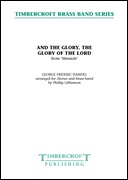 £40.00
£40.00And the Glory of the Lord (from Messiah) (SATB Chorus with Brass Band - Score and Parts) - Handel, George Frideric - Littlemore, Phillip
Handel's Messiah was composed in 1741, receiving it's premiere in Dublin a year later. And The Glory, The Glory Of The Lord is the fourth movement of the oratorio, and the first in which the choir sings. There are no choral parts included with the set, however it works with all the major editions of the vocal score. Duration: 3.20
Estimated dispatch 7-14 working days
-
 £35.00
£35.00Carol of the Bells (Brass Band - Score and Parts) - Littlemore, Phillip
This popular Christmas piece was composed by Mykola Leontovych around 1916. It is based on a Ukrainian folk chant known as 'Shchedryk', a New Year's carol. However, it was not until after the composer's death in 1921 that it was first introduced to Western audiences, when the Ukrainian National Choir included it on their tour of Europe and the Americas that same year. The film composer John Williams incorporated it into the score for the 1990 film Home Alone and he is credited for bringing it to a wider audience still, although it had been released on Christmas albums by a number of popular artists before that. This transcription for brass band has been adapted from the arrangement by Robert Prizeman, who created it for Libera, the world famous boys choir that he both founded and directs. Their unique, enchanting and, some say, heavenly sound delights audiences throughout the world through extensive concerts, recording and TV broadcasts. This brass band transcription introduces this skilled choral arrangement to a new genre and a whole new audience as well. Duration: 3.00
Estimated dispatch 7-14 working days
